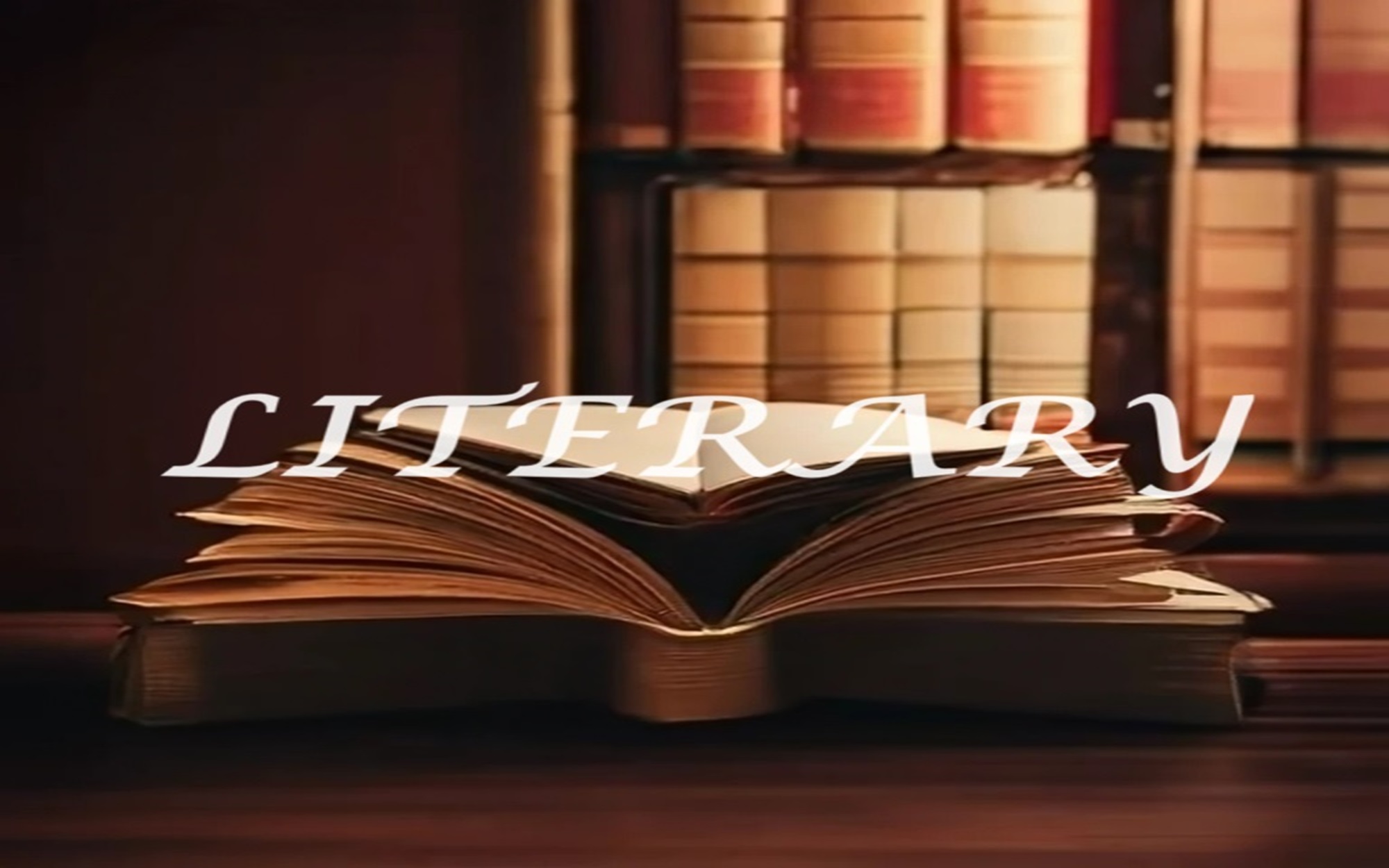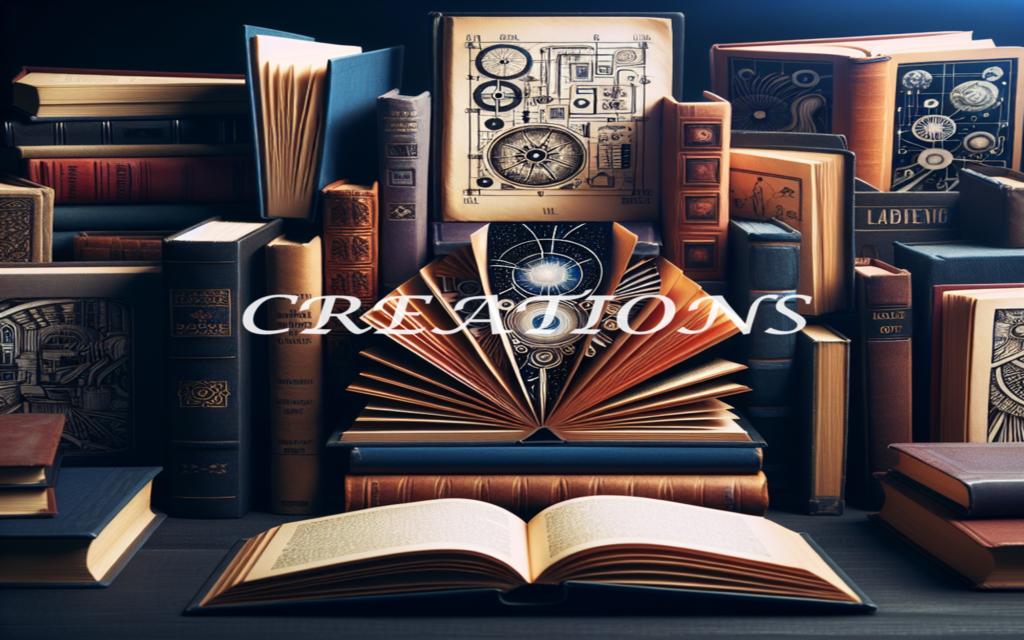Literature is by every means an artistic articulation of thought filled with feelings and imagination. Its expression breeds an openness and never gets limited to the boundary of a specific technical form. Instead, it uncovers a deep, meaningful, untechnical form that makes the manifestation intelligible and simultaneously provides an aesthetic pleasure and a soothing relief to the human mind.
Literature includes all the books that embody how human passion and moral truth are touched by sanity, largeness, and a certain form of profound attraction. In other words, literary words elevate our consciousness and realization of human life. They teach and enable us to see nature with new eyes.
Literature interprets man’s mundane and spiritual intuitions and experiences with the charm of language:
Human thoughts often work to meet speculative reasons or act in the form of logical faculty. However, the existence of literature becomes evident when thoughts become personified in forms that strongly appeal to human sensibilities, ideals, and notions. The undeniable truth is thoughts, feelings, the beauty of expression, and imagination are all equally important to literature.
Literature is a product of the authors who build it out of their lives:

Literature is not a part of spontaneous action. It is a product of the authors who build it out of their lives. They are humans made of flesh and blood who piously loved and worked and simultaneously agonized as human beings to express their thoughts in words. Moreover, the proportion of individuality in each of those writers made an identity of gifted individuals who can mold thoughts and ideas with an emblem of language. This individuality is now an identification of personality. That means together literature, author, and personality build a completely identical platform of thoughts, experiences, ideas, feelings, emotions, intuition, and realization.
The discussion of literature must involve an issue of style:
When the discussion becomes solely restricted to literature, there must be an issue of style. Yes, a literary approach with style forms an author’s personality and, at the same time, creates a way to find out and represent a living product, i.e., literature. However, this approach can’t be limited to specific literary things only. According to Rutherford, it certainly helps an author unveil a transparent record of his artistic, intellectual, and spiritual growth.
The best thing is that when readers walk through this literary approach and sift through it, they can recognize the author’s influence and education on a specific subject matter. Also, this helps them to realize how the writer’s nature gets shaped and molded and why his written outlook is appreciable.
Readers can also pinpoint why living experiences are valuable for a writer to pen literature. They can understand whether any similarity with some specific thoughts or book contents is visible in an author’s creations. If the answer is yes, it unlocks the probability of recognizing another literary style or approach living in another writer’s book that the current author has followed while designing his thoughts.
Literature means association with many artistic thoughts:
A close look at an author’s literary outlook unfolds his intercourse with other artistic thoughts of different men. It shows how his thoughts, intuition, and realization emerge as developed and consolidated while giving birth to updated, diverse, and accessible literature. Further, it manifests how changing outlooks on human society and its problems impact humans and their understanding. It even shows how a writer’s temper modifies his artistic sense and gets identified with successive stages of his writing potential.
In truth, all these factors help to make a written, artistic expression a piece with superior thoughts and realizations. Moreover, a perfect combination of artistic articulation of thoughts consistently and subtly plays a vital role in shaping expression style by giving a well-defined touch to it. The best part is that all phases of this inner and outer process get inscribed on literary superiority.
Literary superiority brings an identity of individuality for authors that, in other words, known as personality:
Yes, Literary superiority brings an identity of individuality for the writers and readers identify it as personality. An author’s literary compositions become more explicit to the readers through the chronological study of the author’s writings. The best part is the accessibility of that writer’ literary pieces to readers makes it easy for them to understand and co-relate the writing style with the contemporary changes in ideas and thoughts.
According to critics, it even opens out the author’s limitations and flaws in delivering artistic articulation of thought, expression, and utterance. But, at the same time, these deficits possess their value in disclosing and understanding how deficiency recovers to the writer’s perfection and becomes the trending approach in contemporaneous changes.

In a word, style with perfection gets shaped as the manifestation of literature. And the writer’s way of expression itself emerges as a commentary or narration of that excellence and refinement. For instance, Shakespeare’s early literary style during his first fifteen to twenty years of dramatic activity endorsed a language that sometimes appeared as a dress placed upon the thought. It seemed like a dress decorated or ornamented with excess care. This entire pattern, at times, helps critics question the definition of sufficiency in language.
However, during the middle stage, famous Shakespearean works like Julius Caesar exhibited perfection and a matchless balance between their thoughts and expressions. And in the late works, this balance left a mark of superiority. The neatly ripe words bearing supreme and unrivaled thoughts became the Shakespearean signature style in the last phase. In truth, a dominating leadership finally emerged in the world of literature during the Elizabethan Age. In short, this is how literature, author, and personality, altogether, lead the world of thoughts, experiences, feelings, emotions, and realization from age to age.
Also read:



